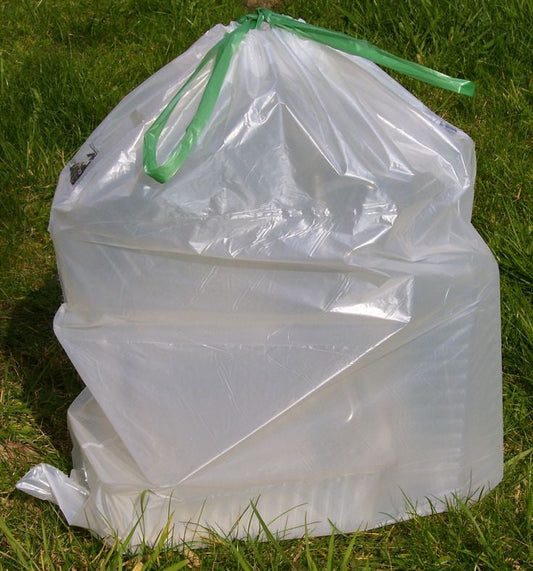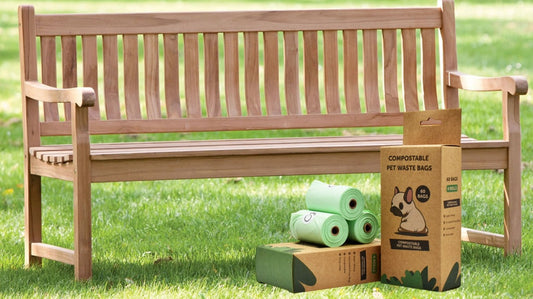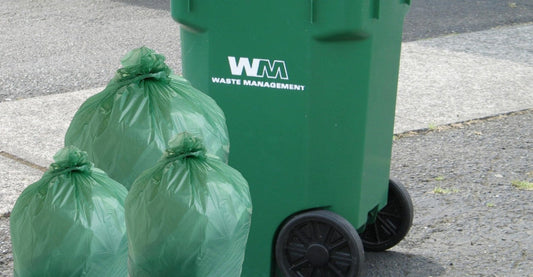In today's world, where environmental awareness is growing, it's crucial to adopt eco-friendly practices in every aspect of our lives. The kitchen, often the heart of the home, generates a significant amount of waste, much of which ends up in landfills. One simple yet effective way to reduce our environmental footprint is by switching to biodegradable garbage bags. Here’s why making this change in your kitchen waste management can have a lasting impact on the planet.
What Are Biodegradable Garbage Bags?
Biodegradable garbage bags are made from materials that can decompose naturally over time, thanks to the action of bacteria, fungi, and other microorganisms. Unlike traditional plastic bags, which can take hundreds of years to break down, biodegradable bags degrade much faster, often within a few months to a couple of years, depending on environmental conditions. Many of these bags are made from plant-based materials, such as cornstarch or other organic compounds, making them a greener alternative to plastic.
Why Should You Use Biodegradable Garbage Bags in the Kitchen?
-
Reduce Plastic Waste
Traditional plastic garbage bags contribute to the growing plastic pollution problem. When these bags end up in landfills or oceans, they persist for centuries, harming wildlife and ecosystems. By using biodegradable garbage bags in your kitchen, you can help cut down on the amount of plastic waste being generated. -
Support Sustainable Practices
Many biodegradable garbage bags are made from renewable resources. When you choose these products, you support industries that prioritize sustainability and responsible production practices. This reduces the need for petroleum-based plastics and promotes the use of natural, eco-friendly alternatives. -
Compostable Options
Some biodegradable garbage bags are also compostable, meaning they can break down in home or industrial compost systems without leaving harmful residues. This is especially beneficial if you compost food scraps in your kitchen, as you can simply toss the entire bag into the compost bin, making your kitchen waste disposal even more environmentally friendly. -
Lower Carbon Footprint
The production of biodegradable bags often requires less energy and emits fewer greenhouse gases compared to traditional plastic bag production. By making this small change, you’re contributing to a reduction in your household’s carbon footprint. -
Eco-Conscious Living Made Easy
Switching to biodegradable garbage bags is one of the simplest ways to start living a more eco-conscious lifestyle. It doesn’t require a drastic overhaul of your routine, and it’s a small, manageable step toward reducing your environmental impact.
Tips for Using Biodegradable Garbage Bags in the Kitchen
-
Choose the Right Size: Make sure the biodegradable garbage bag you choose is the right size for your kitchen trash bin to avoid tearing or overstuffing.
-
Check Certifications: Look for products that are certified as biodegradable or compostable. Labels such as "BPI Certified Compostable" or other international eco-certifications ensure that the bag will break down as advertised,our 1.2 Galoon biodegradable garbage bag is a kitchen bag.
-
Proper Disposal: If you’re using compostable bags, be sure to dispose of them in a composting environment to maximize their benefits. For biodegradable bags, they can be disposed of in your regular trash, but it’s always better to seek out proper waste disposal options, such as biodegradable-friendly landfills or recycling facilities.
-
Avoid Overfilling: Since biodegradable bags are made from organic materials, they may not be as strong as regular plastic bags. Overfilling them could lead to breakage, so be mindful of the amount of waste you put into each bag.




